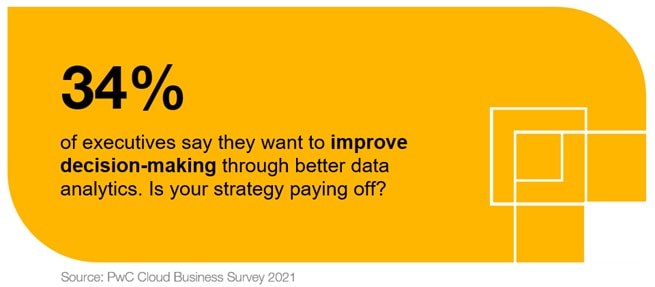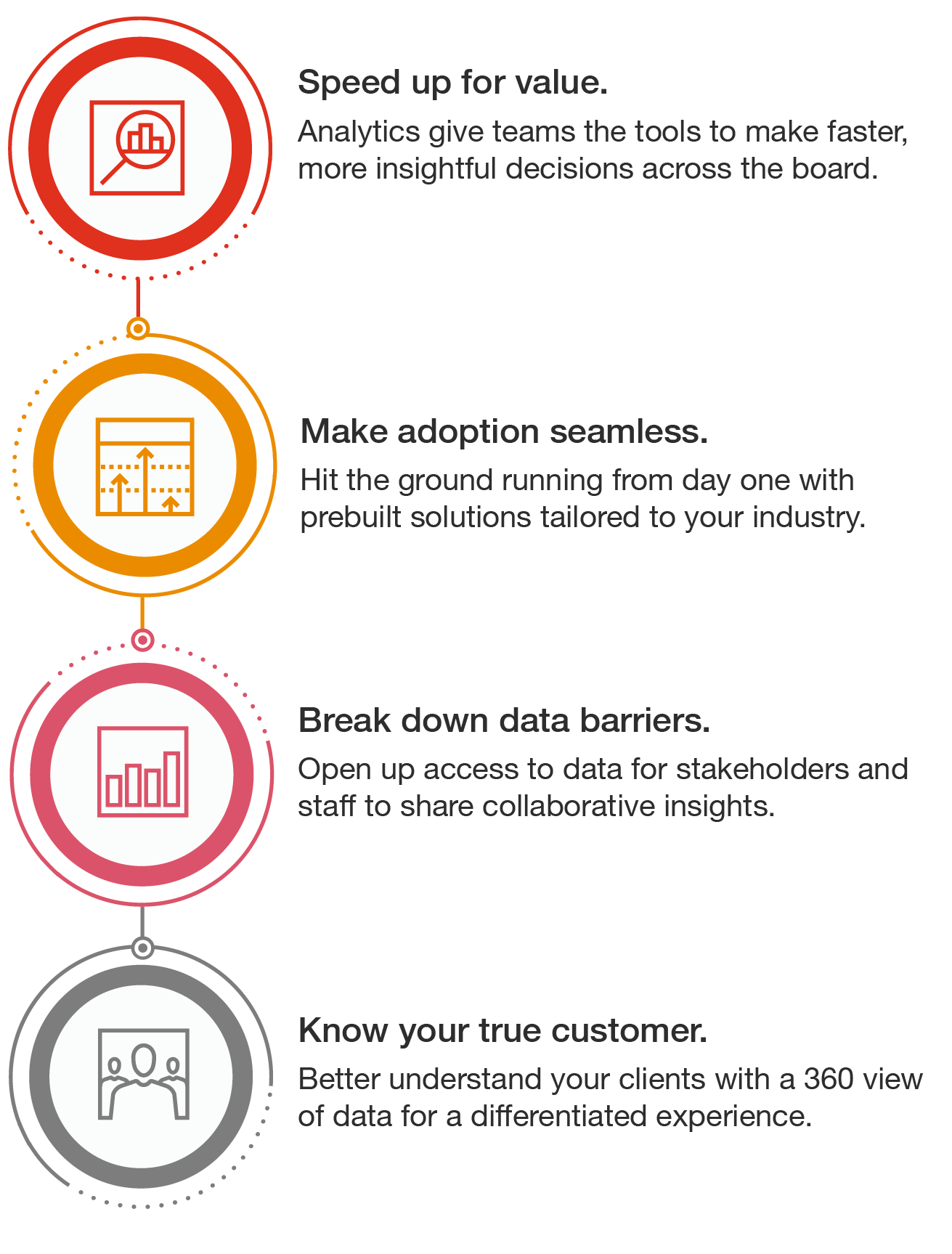{{item.title}}
{{item.text}}

{{item.text}}
Every organization collects data, but only a handful can describe themselves as data-driven. What data is useful? How do data sources connect? Is data accurate and up to date? The answers to these questions can determine your business’s future.
Microsoft Azure’s data analytics platform helps modernize your data – with the goal of driving clear, scalable business outcomes. Whether it’s opening new revenue streams and business opportunities, creating personalized customer experiences or improving productivity, PwC helps equip you with the Azure tools to uncover the true power of your data – and scale for what’s next.
It’s impossible to make smart strategic decisions across your organization without up-to-date information – which your competitors are likely using. Azure opens pathways to profitability by making timely, accurate data available to everyone.
When data silos are opened, decision making improves, and Azure’s modern toolset helps businesses get up to speed quickly. These tools range from AI-based predictive analysis to digital twin programs, helping data evolve from cells on a spreadsheet into a living fabric essential to the enterprise.
PwC helps clients implement over 200 prebuilt Microsoft solutions that are ready to implement on day one. These artificial intelligence (AI) and machine learning (ML) tools let you quickly build cloud-native solutions that give you unprecedented insights into your enterprise data. Of course, data security and governance are essential components of the Azure platform.
Modernize data platforms
Streamline the way your data is created, stored and managed. Remove uncertainty and the risk of conflicting data sources.
Make faster, better decisions
Timely access to data keeps everyone on the same page and improves decision making, while increasing customer satisfaction.
Respond quickly to changing markets
Your competitors are using data and analytics to drive strategic decisions. Use AI to take a leading role in your industry.
Upgrade how your business stores, processes and manages data. Together, PwC and Azure offer cloud-based data and analytic solutions that modernize operations in any industry.
Bring enterprise data out of obscurity by connecting disparate systems and simplifying your data architecture. Data modernization gives you an integrated, 360-degree view of all your essential information.
Engage with a single platform that provides insights into Enterprise Resource Planning (ERP) and non-ERP data. With our ERP framework, Azure provides a standardized way to access all information in the business—opening the door to new insights.
Unlock new insights and drive business growth by taking advantage of Microsoft Azure’s integrated data, AI and ML capabilities. Quickly process large volumes of data to reveal actionable, operational insights to innovate with AI while reducing operational overhead.
Measure, report on and reduce your environmental impact with PwC’s ESG (Environmental, Social, Governance) services. Engage data through Azure and Microsoft Sustainability Manager to support transparency and inform sustainability decisions.
Enhance the way you interact with customers. Microsoft’s Digital Contact Solutions (DCS) offers a robust single platform that can automate customer service features, reduce fraud and deliver seamless customer journeys.
Meet divestiture milestones following M&A activities with prebuilt architecture on Azure. The data carve out framework helps you avoid fines and other penalties while streamlining spin-offs and other activities.
Incorporate next-generation technology into physical spaces. Smart Venues, powered by Azure and Dynamics 365, are designed to help reduce friction and enhance customer experiences while improving venue efficiency, sustainability and security.
Probably not. Find out how to close the gap between simply running on the cloud and creating enterprise-wide value.
{{item.text}}

{{item.text}}
{{item.text}}

{{item.text}}


